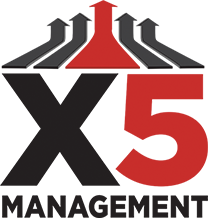As we make our way into December more and more people are distracted from their daily activities by everything  that accompanies the holiday season. Employees are planning their family functions, holidays, dinner parties, Christmas shopping, etc. not to mention taking a few days here and there to cope with the stress. How will lack of focus, or the absence of personnel amplify the risks inherent in your business.
that accompanies the holiday season. Employees are planning their family functions, holidays, dinner parties, Christmas shopping, etc. not to mention taking a few days here and there to cope with the stress. How will lack of focus, or the absence of personnel amplify the risks inherent in your business.
With the holiday season fast approaching it is easy for us to loosen up on managing business risk. This month’s CROPS report has a “risky” holiday spin, to help you keep your business ahead of the curve.
Customer Satisfaction
 What will your customers be asking of you in December? Is it important that you’re available through the holidays or that you are leaving them alone? As always it is important to ask what they need or expect, make them aware of what you plan on doing, and commit to doing it. Focusing on following through is even more important during the holiday season, there are so many distractions things have a tendency to stand still.
What will your customers be asking of you in December? Is it important that you’re available through the holidays or that you are leaving them alone? As always it is important to ask what they need or expect, make them aware of what you plan on doing, and commit to doing it. Focusing on following through is even more important during the holiday season, there are so many distractions things have a tendency to stand still.
 Risk Management
Risk Management
Business risk may be difficult to avoid but there are many things that your business and team members can do to mitigate or reduce risk. Does one key person in your company do specific duties that no one else can do? Will they be taking any holidays this Christmas or New Years? We see so many successful business owners that have built incredible companies and surround themselves with great people. All is good, except that they have avoided the conversation about Succession Planning. Which up-and-comer should be out schmoozing alongside your key people this December?
 Operational Efficiencies
Operational Efficiencies
Is your business operation focused and precise on delivering results? Can you sharpen your game to hit targets and objectives on a more consistent basis? Do all the moving parts of your business operate efficiently, effectively and productively? Do they work with, or against each other? Will production increase or decrease in December? Will key people have an increased capacity for training on account of lower production or fewer deliverables?
 People
People
Your employees are the backbone of your business. You can’t grow without them. How are you rewarding/celebrating your people this holiday season? Are you communicating with your employees and team members regularly and seeking to understand why they work with your company? What growth and development opportunities are you offering in December, or the New Year?
Take some time to think about how you can celebrate and empower your employees in the New Year in order to bolster growth and increase retention.
 Sales
Sales
Christmas is the season of giving. What is your sales team doing to improve customer relations over the holidays? Are you inviting clients to share in some holiday cheer? Have you come up with a strategy for sending out seasons greetings, and could it be tied into raising money for your favorite charity. If at some point you hope to receive, you must first be willing to give and ’tis the season, so join in and be creative.
This month’s feature article will help you better understand the risks inherent in your business and offer some insight into how you can manage those risks. X5’s Risk Management Specialist Jason Desaulniers, is a master of managing business risk and he is always at your disposal.
 Written by: Jason Desaulniers; CFP, CLU, CIM, CHS
Written by: Jason Desaulniers; CFP, CLU, CIM, CHS
X5 Management, Inc.
I meet with business owners every week. And every week I meet with business owners who are in complete belief that they are in possession of an accurate and adequate shareholders agreement…unfortunately…nearly every week when we open that document up and begin to read it, we realize that there are skeletons in the closet that the business owner was not aware of and that could surface down the road as a nasty and unanticipated surprise.
One of the biggest issues that we uncover are agreements that have not been signed. Yes, you read that correctly. Even though this is the “will” for the business, the foundation and structure for all the “what if’s” that may occur in the future, yet it is sitting in a drawer without ink on those most important of lines that would allow for the owners’ and shareholders’ plans and wishes to actually be executed when the time comes to do so. Without signatures on those lines, this agreement is only so many pieces of paper, and not worth the ink that it was printed with. Is your agreement signed? Are you certain?
Another issue that we have seen is hidden within the structure of the company ownership. Imagine a couple of people starting a business from scratch, perhaps from their basement or garage. They have great intentions, and hire a lawyer to draft their shareholders agreement (which they sign). Years later, their business has grown and is quite successful. Through working with their accountant and lawyer, they have created Holding Companies to own the shares of their Operating Company, and have implemented other planning strategies as well. Upon review of their original agreement, we discover that even though the shares of their business are now owned by their respective Holding Companies, their agreement contemplates those shares still being owned by them personally, as the agreement had not been updated in the intervening years. This can have serious complications when trying to compel a shareholder under the terms of the agreement to deal with shares that they do not actually own. Much like the aforementioned will, the shareholders agreement should be reviewed every 3-5 years, and whenever major business or life changes should occur. When was your agreement last updated?
Once the agreement has been drafted, signed, and kept up to date; there remains the question of funding arrangements. Typically, there are only a few ways for a shareholder to fund the buy-out of another shareholder. These include using personal savings or personal assets for collateral, if they are sufficient (and/or unencumbered enough) for the task at hand. Alternatively, a corporate asset may be sold, although it may not be an opportune time to do so depending upon market conditions, or that asset may still be required for the business to operate. Perhaps the business could increase sales in order to fund the buy-out? However if that was easily achievable, then why not do so in any case? Was not the outgoing owner important to the overall sales effort or to the company’s management needs? Perhaps the remaining owner(s) may wish to turn to their “favorite banker”? Depending on the situation this may be feasible, however interest costs would need to be accounted for. That being said, depending on the situation, the “favorite banker” may not be so favorable after all. Another option may be to fund the buy-out with insurance. With enough planning, that will often prove to be the most cost effective and tax efficient. Again though, the planning must be in place before the funding is needed, as we all have a “best before” date. How is your agreement funded? Has this funding kept pace with the growth of your business?
A new year is nearly upon us, and with a new year comes the opportunity for new beginnings. Perhaps now is an opportune time for you to ask these questions of your own shareholders agreements?









